
Webflow vs WordPress: The Ultimate Comparison for 2025
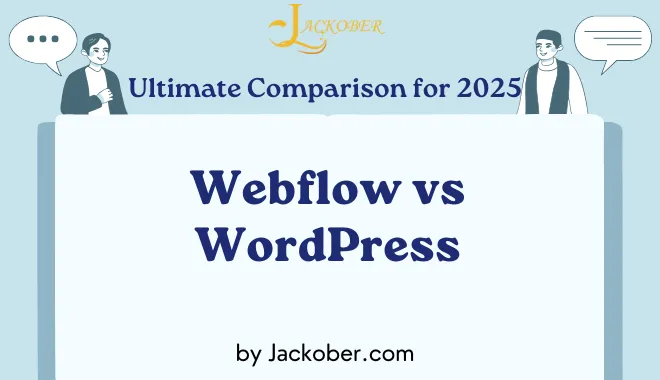
As a professional WordPress developer and SEO specialist at Jackober, I’ve worked with countless businesses to build and optimize their online presence. One question I’m frequently asked is: “Should I use Webflow vs WordPress for my website?”
It’s a valid question. Both platforms offer compelling features and benefits, but they serve different needs and business models. Making the right choice can significantly impact your website’s performance, scalability, and long-term success.
In this comprehensive comparison, I’ll break down the key differences between Webflow and WordPress, helping you understand which platform might be the better fit for your specific requirements. As someone who has implemented hundreds of WordPress solutions for clients across various industries, I’ll provide an honest assessment while sharing why we at Jackober continue to recommend WordPress for most business applications.
Overview: Webflow vs WordPress
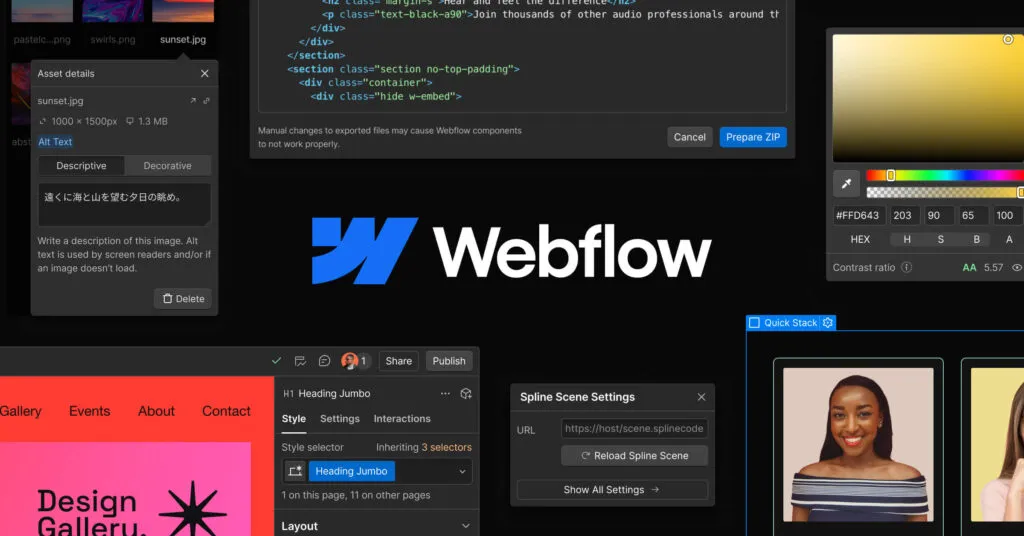
Before diving into specifics Webflow vs WordPress, let’s establish a basic understanding of each platform:
WordPress
WordPress is the world’s most popular content management system (CMS), powering approximately 43% of all websites on the internet. It’s an open-source platform that offers tremendous flexibility through its extensive ecosystem of themes and plugins.
Key characteristics:
- Self-hosted (you own and control your data)
- Highly customizable with 59,000+ plugins and thousands of themes
- Suitable for websites of any size and complexity
- Free to use (though hosting, premium themes, and plugins may cost)
- Massive community and support network
Webflow
Webflow is a SaaS (Software as a Service) platform that combines visual web design tools with hosting and CMS capabilities. It’s known for its intuitive visual editor that generates clean code.
Key characteristics:
- Hosted solution (built on Amazon Web Services)
- Visual design interface with no coding required
- Built-in CMS functionality
- Integrated hosting
- Subscription-based pricing model
Now, let’s examine how these platforms compare across various critical aspects.
Ease of Use and Learning Curve
Webflow
Webflow vs WordPress primary selling point is its visual design interface, which allows designers to create websites without writing code. However, this doesn’t mean Webflow is necessarily easy to use for everyone.
Pros:
- Intuitive visual editor that shows real-time changes
- No need to switch between frontend and backend
- Clean, organized interface for designing
Cons:
- Steep learning curve for non-designers
- Complex terminology and concepts to learn
- Can be overwhelming for simple projects
WordPress
WordPress offers different experiences depending on your approach:
For beginners:
- User-friendly dashboard
- Simple content creation with the block editor
- Easy installation of pre-built themes
- “What you see is what you get” (WYSIWYG) editing
For developers:
- Deeper customization requires coding knowledge
- Learning PHP, CSS, and JavaScript opens up unlimited possibilities
- Page builders like Elementor or Divi can bridge the gap
Verdict: Webflow has a steeper initial learning curve but offers more design control without coding. WordPress is easier to start with for basic content management but may require technical help for advanced customization.
Design and Customization Capabilities
Webflow
Webflow excels in design flexibility and precision:
- Pixel-perfect control over all design elements
- Advanced animations and interactions without plugins
- Responsive design controls built into the core platform
- Clean, efficiently generated code
- Custom CSS and JavaScript can be added when needed
WordPress
WordPress’s design capabilities vary based on your approach:
- Thousands of pre-built themes, including Free WordPress Themes for various purposes
- Page builders (Elementor, Beaver Builder, Divi) offer visual editing
- Full-site editing now available in core WordPress
- Complete freedom to customize code directly
- Nearly unlimited design potential with the right expertise
Verdict: Webflow offers superior built-in design tools and precision. WordPress offers more variety through themes and plugins but may require additional tools or expertise to match Webflow’s design flexibility.
Content Management Functionality
Webflow
Webflow’s CMS is purpose-built and tightly integrated:
- Structured content types (Collections)
- Dynamic content capabilities
- Relational fields between content types
- Content API available on higher plans
- Editor roles with limited permissions
WordPress
Content management is WordPress’s core strength:
- Intuitive content creation with blocks
- Advanced taxonomy system (categories, tags, custom taxonomies)
- Custom post types for specialized content
- Robust user role management
- Extensive content filtering and organization options
- RESTful API for headless implementations
Verdict: WordPress offers more robust and flexible content management capabilities, especially for complex content structures. Webflow’s CMS is elegant but more limited in advanced scenarios.
E-commerce Capabilities
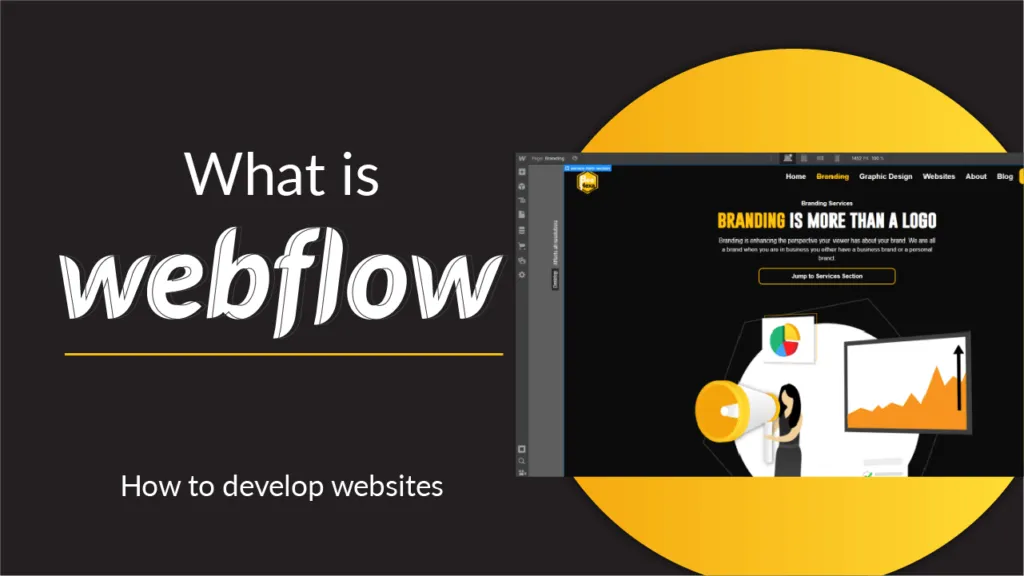
Webflow
Webflow E-commerce is relatively new but growing:
- Built-in e-commerce functionality on higher plans
- Clean, customizable product pages
- Basic shopping cart and checkout functionality
- Limited payment gateways (Stripe, PayPal)
- No built-in marketplace integrations
- Transaction fees on standard plan
WordPress
WordPress with WooCommerce is an e-commerce powerhouse:
- WooCommerce powers 28% of all online stores
- Unlimited products and categories
- Dozens of payment gateway options
- Flexible shipping and tax rules
- Subscription capabilities
- Marketplace integrations (Amazon, eBay, etc.)
- Advanced reporting and analytics
- No transaction fees (beyond payment processor fees)
Verdict: WordPress with WooCommerce offers significantly more robust e-commerce capabilities, especially for complex stores. Webflow’s e-commerce is suitable for smaller stores with basic needs.
SEO Performance
Webflow
Webflow provides solid SEO fundamentals:
- Clean, semantic HTML output
- Fast loading pages (when optimized)
- Built-in meta title and description controls
- Automatic sitemap generation
- 301 redirects management
- Basic schema markup options
WordPress
WordPress offers comprehensive SEO capabilities:
- Complete control over all technical SEO aspects
- Powerful SEO plugins (Yoast SEO, Rank Math, SEOPress)
- Advanced schema markup options
- Detailed SEO analysis and recommendations
- Bulk editing of SEO elements
- Content optimization suggestions
- Internal linking tools
At Jackober, we’ve consistently achieved top rankings for competitive keywords through WordPress’s robust SEO capabilities, including implementing proper security with How to add SSL to WordPress for better search rankings.
Verdict: Both platforms can perform well for SEO, but WordPress offers more advanced SEO tools and granular control through specialized plugins.
Performance and Loading Speed Webflow vs WordPress
Webflow
Webflow sites typically perform well out of the box:
- Hosted on fast Amazon Web Services infrastructure
- Automatic CDN implementation
- Generally efficient code output
- Built-in image optimization
- Limited ability to optimize beyond Webflow’s defaults
WordPress
WordPress performance depends on implementation:
- Performance varies based on hosting, theme, and plugins
- Requires proper optimization for best results
- Powerful caching plugins available
- Advanced image optimization options
- Complete control over code efficiency
- Can achieve excellent performance with proper setup
Verdict: Webflow generally offers good performance by default with less configuration. WordPress can achieve equal or better performance but often requires deliberate optimization.
Security Considerations Webflow vs WordPress
Webflow
As a hosted platform, Webflow handles most security concerns:
- Security managed by Webflow’s team
- Automatic updates and patches
- Built-in SSL certificates
- Limited vulnerability surface due to closed system
- Less control over security implementations
WordPress
WordPress security requires proactive management:
- Regular updates to core, themes, and plugins
- Security best practices must be implemented
- Quality hosting makes a significant difference
- Security plugins provide additional protection
- Complete control over security measures
At Jackober, we implement comprehensive Cyber Security measures for all WordPress websites we build, ensuring they remain protected against evolving threats.
Verdict: Webflow offers simpler security management through its hosted nature. WordPress requires more active security management but allows for more comprehensive security measures.
Pricing and Long-term Costs Webflow vs WordPress
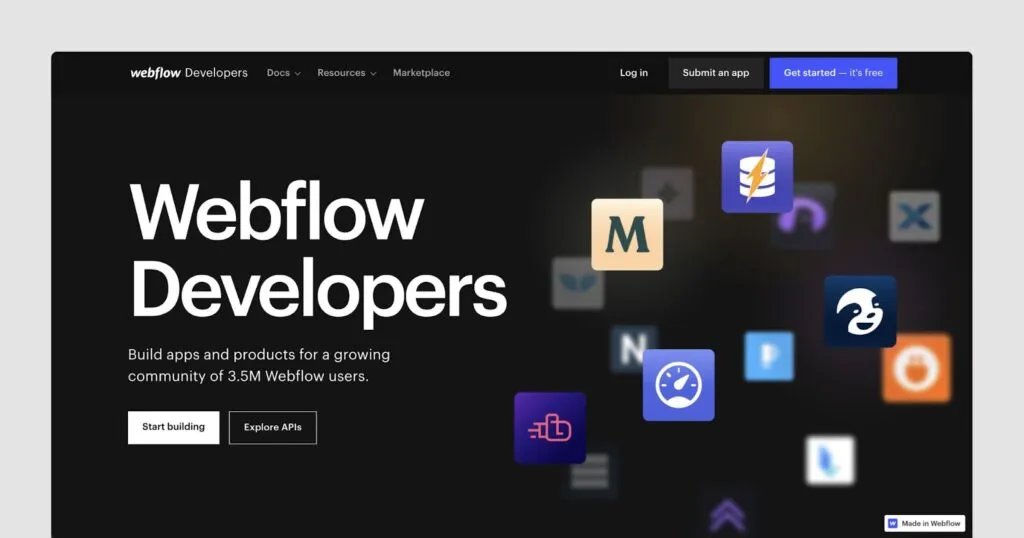
Webflow
Webflow operates on a subscription model:
- Site plans: $12-$36+ per month
- CMS plans: $16-$212+ per month
- E-commerce plans: $29-$212+ per month
- Additional costs for multiple sites
- No ownership of platform (ongoing subscription required)
WordPress
WordPress costs are more variable:
- WordPress software is free
- Hosting: $5-$100+ per month depending on needs
- Premium themes: $0-$200 (one-time)
- Premium plugins: $0-$200+ per year (for premium)
- Developer costs vary widely if needed
- Complete ownership of your website
Verdict: Webflow vs WordPress often offers lower long-term costs, especially for growing sites, with no platform fees. Webflow’s predictable subscription model may be simpler but typically costs more over time, especially as sites grow.
Scalability and Growth Potential Webflow vs WordPress
Webflow
Webflow has some limitations for large-scale sites:
- CMS item limits on lower plans
- Performance can degrade with very large sites
- Limited API access on lower plans
- Fixed hosting infrastructure
- Bandwidth limitations
WordPress
WordPress can scale to virtually any size:
- Powers major sites like The New York Times, Sony Music, and Disney
- No content limitations
- Flexible hosting options as you grow
- Horizontal scaling capabilities
- Enterprise-level solutions available
Verdict: Webflow vs WordPress offers superior scalability for growing businesses, with virtually no ceiling on site size or traffic. Webflow is more limited for very large or complex sites.
Community and Support Webflow vs WordPress
Webflow
Webflow has a growing but limited community:
- Official Webflow University (excellent documentation)
- Webflow forum
- Email support (response times vary by plan)
- Smaller pool of Webflow experts
- Limited third-party resources
WordPress
WordPress has an unmatched community:
- Millions of developers and users worldwide
- Countless tutorials, forums, and resources
- Regular WordCamp events globally
- Extensive documentation
- Large marketplace of WordPress Expert for Hire
Verdict: Webflow vs WordPress offers a significantly larger support ecosystem, making it easier to find help, resources, and expertise at any budget level.
Integration Capabilities Webflow vs WordPress
Webflow
Webflow offers decent integration options:
- Native Zapier integration
- Embed codes for third-party tools
- API access on higher plans
- Limited native integrations
- Custom code capabilities for advanced needs
WordPress
WordPress is the king of integrations:
- 59,000+ plugins for virtually any functionality
- Native REST API
- Webhook support
- Direct database access when needed
- Custom integration development possible
- Connects to nearly any third-party service
Verdict: Webflow vs WordPress offers vastly superior integration capabilities, especially for businesses with complex needs or specific third-party services.
Maintenance Requirements Webflow vs WordPress
Webflow
Webflow requires minimal maintenance:
- Platform updates handled automatically
- No plugin conflicts to manage
- Security patches applied by Webflow
- Limited ongoing maintenance needs
WordPress
WordPress requires regular maintenance:
- Core, theme, and plugin updates
- Security monitoring
- Database optimization
- Backup management
- Compatibility testing after updates
WordPress site example: Jackober.one
Verdict: Webflow vs WordPress offers a lower maintenance burden, which can be appealing for businesses without technical resources. WordPress requires more active maintenance but offers more control.
Use Cases: When to Choose Each Platform Webflow vs WordPress
When Webflow Makes Sense
Webflow may be the better choice when:
- Design precision is the absolute priority
- The project is primarily a brochure site
- The team consists mainly of designers without developers
- Maintenance resources are limited
- Content structure is relatively simple
- Budget allows for ongoing subscription costs
When WordPress Makes Sense
WordPress is typically the better choice when:
- Content management is complex or extensive
- E-commerce functionality is important
- Budget optimization is a priority
- Custom functionality is required
- Long-term scalability is important
- Integration with other business systems is needed
- Complete ownership of your website matters
Why We Choose WordPress at Jackober
At Jackober, we’ve built our business on WordPress expertise because we’ve found it to be the most versatile, scalable, and cost-effective solution for the vast majority of business websites. Here’s why we consistently recommend WordPress to our clients:
Unmatched Flexibility for Any Business Model
Webflow vs WordPress’s architecture allows it to adapt to virtually any business model:
- E-commerce: From simple product stores to complex marketplace systems
- Membership Sites: Sophisticated user roles and restricted content
- Learning Management: Complete online course platforms
- Service Businesses: Lead generation and appointment systems
- Media Publications: Content-heavy sites with advanced categorization
- Multilingual Businesses: Comprehensive translation capabilities
Total Ownership and Control
With WordPress, our clients own their websites completely:
- No platform dependency or ongoing fees to maintain ownership
- Freedom to change hosting providers as needed
- Complete data portability
- No feature limitations based on subscription tiers
Superior Long-term Value
Over the years, we’ve found WordPress provides better ROI:
- Lower total cost of ownership for growing sites
- No scaling penalties or feature paywalls
- Competitive advantage through custom functionality
- More efficient content management for marketing teams
- Better integration with business systems reducing manual work
Enterprise-Grade Security
Through proper implementation, Webflow vs WordPress security can meet the needs of even the most security-conscious organizations:
- Comprehensive security hardening
- Regular vulnerability scanning
- Managed update processes
- Advanced access controls
- Detailed security logging and monitoring
Our team at Jackober implements the security best practices detailed in our Cyber Security guide for all client websites.
SEO Advantage
For businesses that value organic traffic, WordPress offers significant advantages:
- Granular control over all SEO elements
- Advanced structured data implementation
- Superior content organization capabilities
- Faster content deployment workflows
- More sophisticated internal linking tools
Real Business Results
Most importantly, we choose Webflow vs WordPress because it delivers results:
- Higher conversion rates through optimized user experiences
- Improved operational efficiency through automation
- Reduced marketing costs through better organic visibility
- Increased customer satisfaction through better site performance
- Enhanced brand perception through professional design
Our Expert Guides section contains numerous case studies demonstrating these outcomes for various business types.
Final Verdict: Webflow vs WordPress in 2025
Both Webflow vs WordPress are powerful platforms with distinct advantages. The right choice depends on your specific business needs, resources, and priorities.
Choose Webflow if:
- Design precision is your absolute priority
- You have limited technical resources for maintenance
- Your content needs are relatively straightforward
- You prefer a predictable monthly cost
- You don’t need extensive custom functionality
Choose WordPress if:
- You value platform flexibility and customization
- Long-term cost efficiency is important
- You have (or plan to have) complex content needs
- E-commerce is a significant component
- You want complete ownership of your website
- Integration with other business systems is necessary
- You plan to scale significantly over time
At Jackober, we specialize in creating high-performing WordPress websites that deliver measurable business results. While we acknowledge Webflow’s strengths for certain use cases, our experience has shown that WordPress provides superior value, flexibility, and performance for the vast majority of business websites.
If you’re considering which platform is right for your business, I’d be happy to provide a personalized assessment based on your specific needs. As a WordPress Expert for Hire, I can help you navigate the decision-making process and implement the solution that will best serve your business objectives.
For businesses that have already decided on WordPress, our team offers comprehensive development, optimization, and maintenance services to ensure your website performs at its best. From selecting the right Free WordPress Themes to implementing advanced custom functionality, we’re here to help you maximize the potential of the world’s most popular website platform.
What questions do you have about Webflow vs WordPress for your specific situation? I’m here to help you make the right choice for your business.

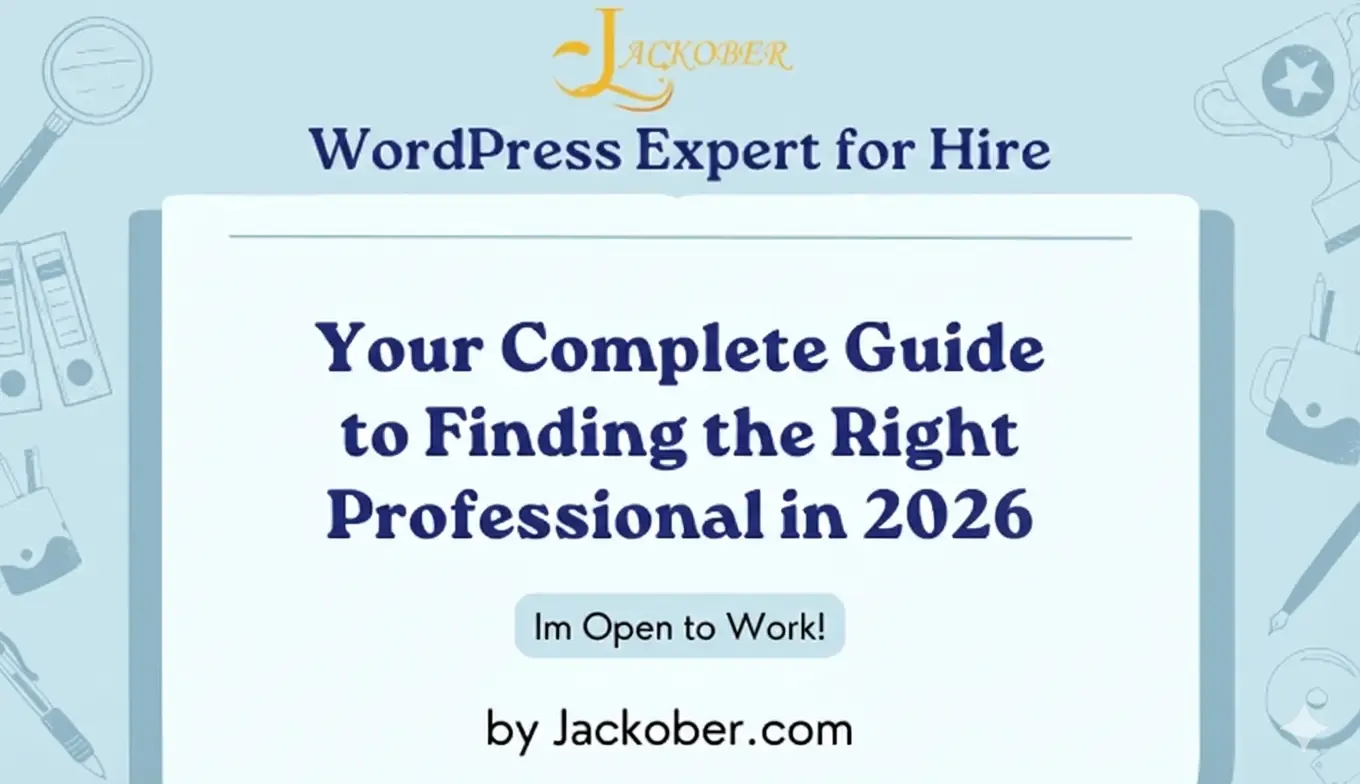
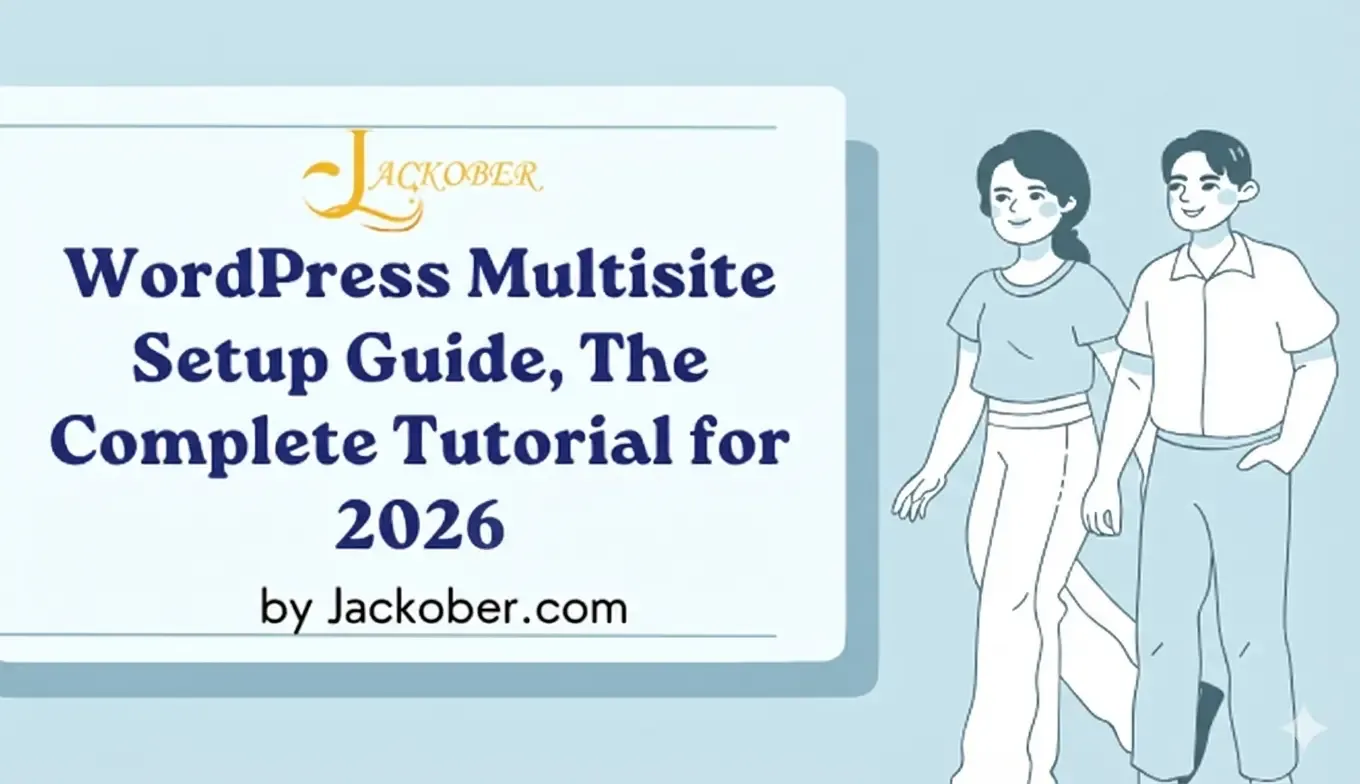
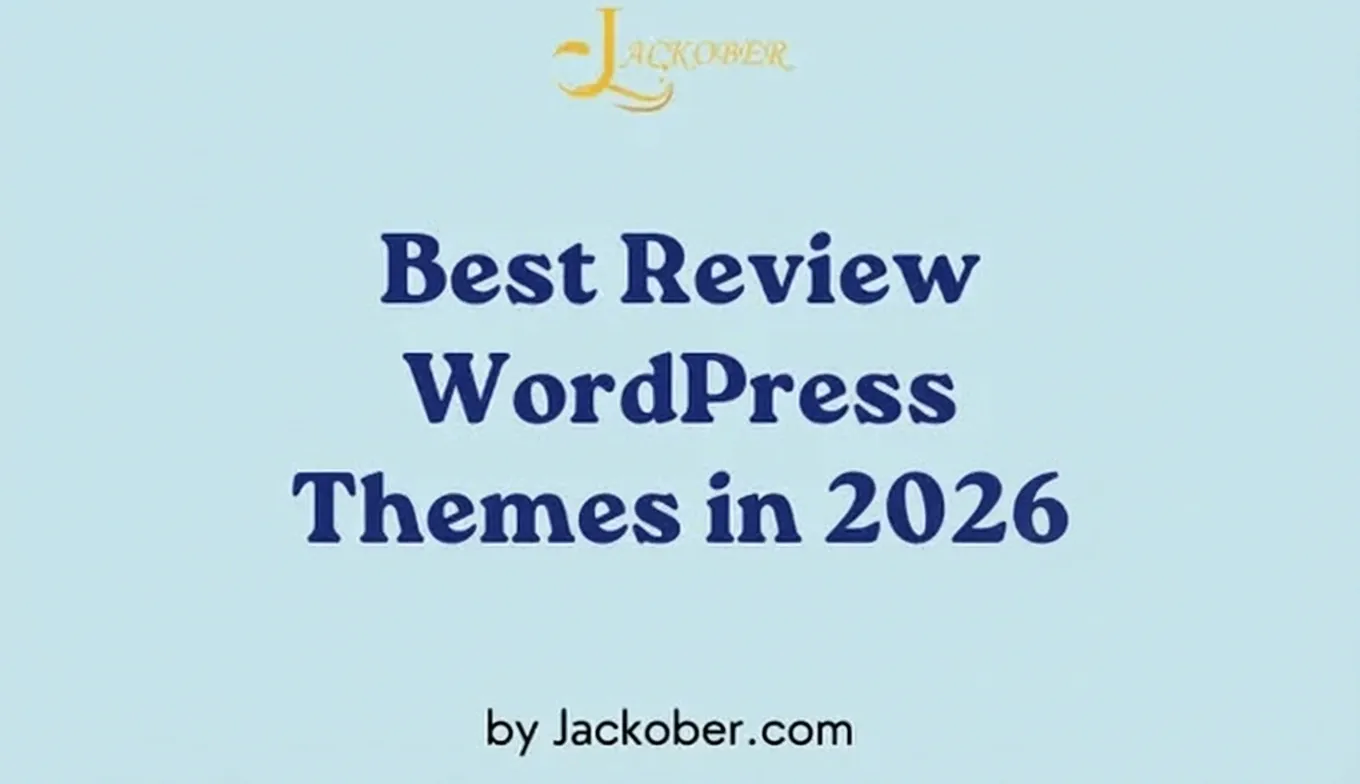

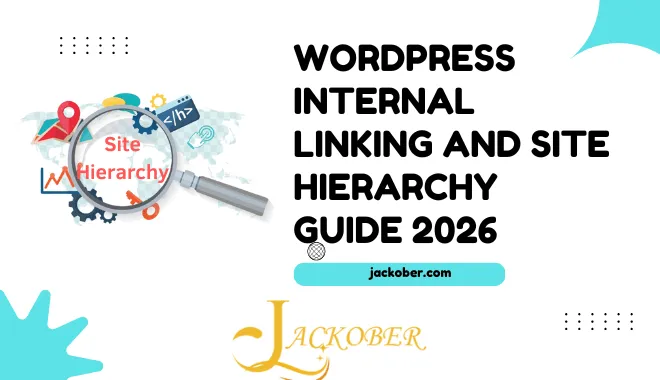
One thought on “Webflow vs WordPress: The Ultimate Comparison for 2025”